They provide good services for recovering from substance abuse. They have helped me a lot, I feel like I'm going through a better path now.
About Grace House
Since 1994, Grace House has provided residential care for women exiting the prison system in Chicago, Illinois. This program offers a safe space to hone in on recovery. You can access addiction and mental health treatment as well as gender specific care to meet your unique needs.
Free Services for Women After Incarceration
One wonderful feature I noticed is that their programs are completely free. You can access behavioral health care, medical health services, housing, education and training programs, and more at no cost to you.
A Comfortable Recovery Environment
What stands out most to me is their welcoming, home like environment. They house 20 residents, with options ranging from single resident to four person rooms. You can enjoy all the comforts of home while focusing solely on recovery and rebuilding your life.
A computer lab and classroom, a library, exercise equipment, a dining room and more are available. They also provide three nutritious meals every day. You’ll benefit from a supportive space away from distractions.
Education and Employment Services
Another great feature I noticed was their education and employment services. They understand that reaching sobriety is one part of recovery but that it takes more than abstinence. You can access construction and culinary arts programs, as well as employment placement assistance. That way, you can gain essential skills and start a career to build stability after treatment.
Spiritual Enrichment
I also like that they offer spiritual enrichment here. Spirituality can be vital in recovery for many. You’ll benefit from ongoing support to connect with a higher power and gain deeper meaning in your journey.
Parenting Skills and Child Development
Their parenting sessions also caught my eye. They help you gain crucial parenting skills to improve your family. You can rebuild trust and create a stable, supportive environment as you move forward in recovery.
Latest Reviews
Rehab Score
Gallery
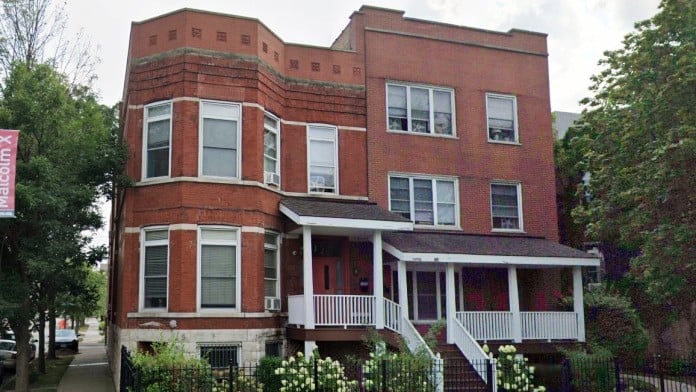
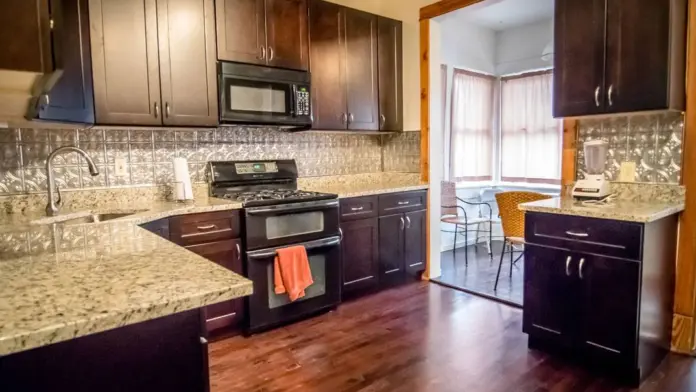
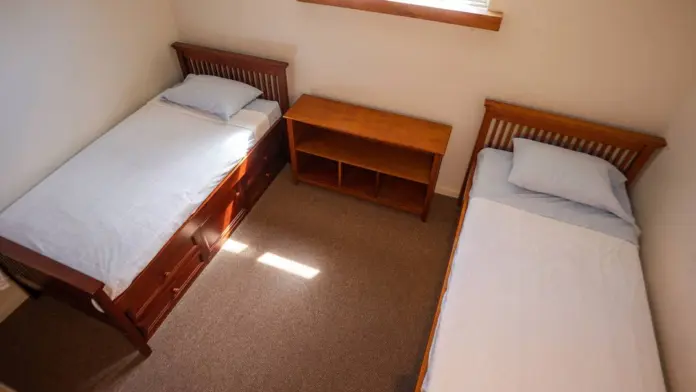
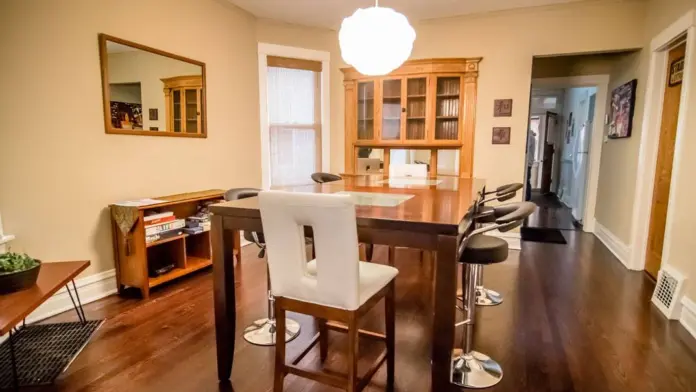
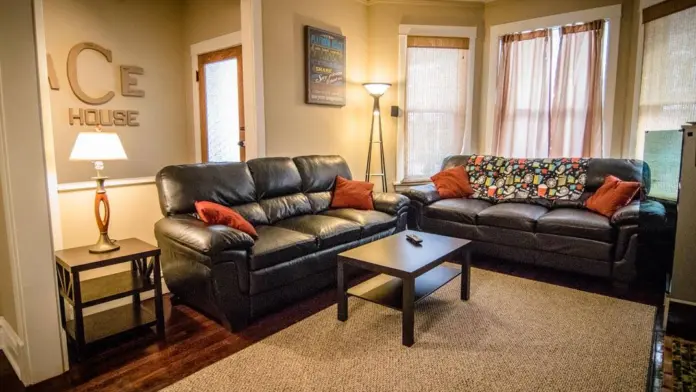
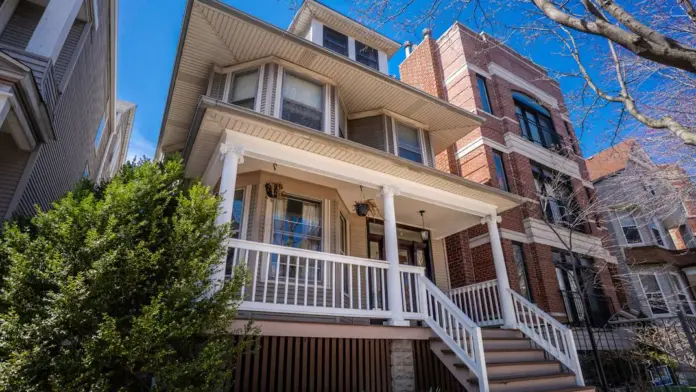
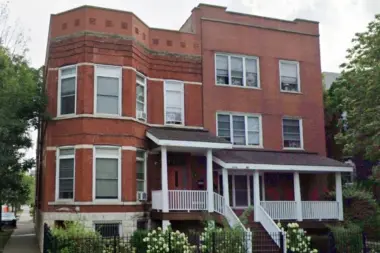
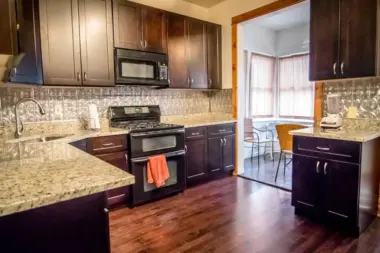
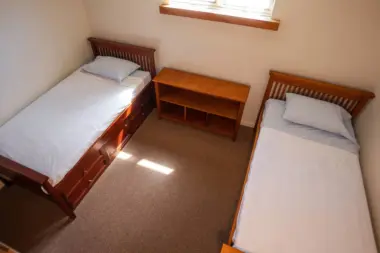
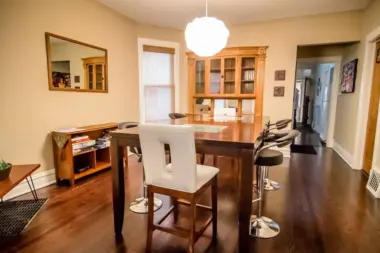
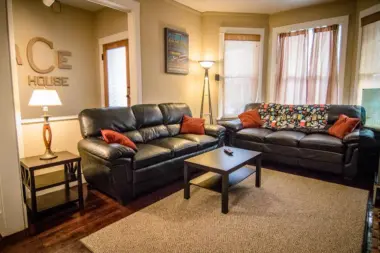
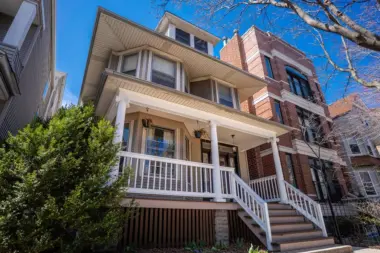
Other Forms of Payment
Self-pay involves paying for treatment out of your own pocket. You can use savings or credit, get a personal loan, or receive help from family and friends to fund your treatment. If you don't have insurance or your insurance plan doesn't cover a specific program, self-pay can help ensure you still get the care you need.
Medicaid is a state based program that helps lower-income individuals and families pay for healthcare. Medicaid covers addiction treatment so those enrolled can use their coverage to pay for rehab. When a program accepts Medicaid the client often pays very little or nothing out of their own pocket.
Addiction Treatments
Levels of Care
Residential treatment programs are those that offer housing and meals in addition to substance abuse treatment. Rehab facilities that offer residential treatment allow patients to focus solely on recovery, in an environment totally separate from their lives. Some rehab centers specialize in short-term residential treatment (a few days to a week or two), while others solely provide treatment on a long-term basis (several weeks to months). Some offer both, and tailor treatment to the patient's individual requirements.
Treatments
The goal of treatment for alcoholism is abstinence. Those with poor social support, poor motivation, or psychiatric disorders tend to relapse within a few years of treatment. For these people, success is measured by longer periods of abstinence, reduced use of alcohol, better health, and improved social functioning. Recovery and Maintenance are usually based on 12 step programs and AA meetings.
Drug rehab in Illinois is designed to help people recover from addiction to a number of substances. The length of each program and its intensity tend to vary, and the plan of care is based on your individual needs.
A combined mental health and substance abuse rehab has the staff and resources available to handle individuals with both mental health and substance abuse issues. It can be challenging to determine where a specific symptom stems from (a mental health issue or an issue related to substance abuse), so mental health and substance abuse professionals are helpful in detangling symptoms and keeping treatment on track.
Opioid rehabs specialize in supporting those recovering from opioid addiction. They treat those suffering from addiction to illegal opioids like heroin, as well as prescription drugs like oxycodone. These centers typically combine both physical as well as mental and emotional support to help stop addiction. Physical support often includes medical detox and subsequent medical support (including medication), and mental support includes in-depth therapy to address the underlying causes of addiction.
Programs
Adult rehab programs include therapies tailored to each client's specific needs, goals, and recovery progress. They are tailored to the specific challenges adult clients may face, including family and work pressures and commitments. From inpatient and residential treatment to various levels of outpatient services, there are many options available. Some facilities also help adults work through co-occurring conditions, like anxiety, that can accompany addiction.
Young adulthood can be an exciting, yet difficult, time of transition. Individuals in their late teens to mid-20s face unique stressors related to school, jobs, families, and social circles, which can lead to a rise in substance use. Rehab centers with dedicated young adult programs will include activities and amenities that cater to this age group, with an emphasis on specialized counseling, peer socialization, and ongoing aftercare.
Clinical Services
Research clearly demonstrates that recovery is far more successful and sustainable when loved ones like family members participate in rehab and substance abuse treatment. Genetic factors may be at play when it comes to drug and alcohol addiction, as well as mental health issues. Family dynamics often play a critical role in addiction triggers, and if properly educated, family members can be a strong source of support when it comes to rehabilitation.
Group therapy is any therapeutic work that happens in a group (not one-on-one). There are a number of different group therapy modalities, including support groups, experiential therapy, psycho-education, and more. Group therapy involves treatment as well as processing interaction between group members.
In individual therapy, a patient meets one-on-one with a trained psychologist or counselor. Therapy is a pivotal part of effective substance abuse treatment, as it often covers root causes of addiction, including challenges faced by the patient in their social, family, and work/school life.
Life skills trainings involve all the skills a person must have in order to function successfully in the world. These include time management, career guidance, money management, and effective communication. Truly successful addiction recovery is based on the ability to not only live substance-free, but to thrive. Life skills teaches the practical necessities of functioning in society, which sets clients up for success in life, and therefore sobriety.
Recreational therapy (aka therapeutic recreation) uses creative and fun activities to help with addiction recovery. Recreational therapists lead patients in entertaining and engaging activities like sports or games; art (drawing, painting, sculpture); drama, music, and dance; and/or community outings (field trips) to improve patients' physical, social, and emotional well-being.
Amenities
-
Gym
-
Residential Setting
-
Private Rooms
Staff
Zack Schrantz
Executive Director
Ivory Snow
Chief Administrative Officer
Juanita Rodriguez
Finance Director
Christopher Roach
Saint Leonard’s House Program Director
Cathy Lesmeister
Director of Grants & Quality Improvement
David Rosa
Permanent Housing Site Administrator
Darrell Robinson
Facilities Director
Dave Thomas
Senior Program Director
Contact Information
1801 West Adams Street
Chicago, IL 60612